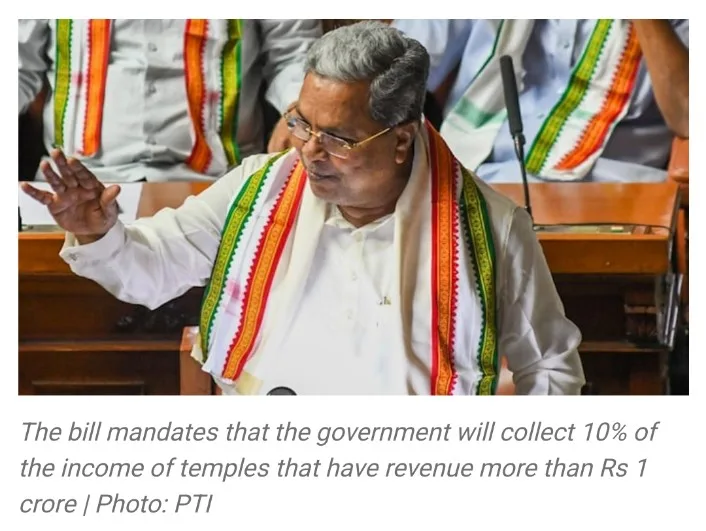The Karnataka government has approved the Hindu Religious Institutions and Charitable Endowment bill, requiring temples with an income exceeding Rs 1 crore to contribute 10% of their revenue to the government. The bill has sparked criticism from the BJP, accusing the Congress-led Karnataka government of pursuing “anti-Hindu policies” and raising concerns about potential fund misuse.
The bill, passed in the Assembly, stipulates that the government will collect 10% of the income from temples with a revenue of over Rs 1 crore. BJP’s Karnataka unit president Vijayendra Yediyurappa raised objections, claiming the state government aims to replenish its “empty coffers” through this bill. He questioned why the government targets revenue from Hindu temples exclusively, neglecting other religious structures.
Yediyurappa expressed the concerns of devotees, questioning the focus on Hindu temples and not considering income from other religious places. He emphasized the potential for mismanagement of funds.
Transport minister and Congress leader Ramalinga Reddy dismissed BJP’s allegations, clarifying that the funds would be utilized for “dharmic parishad” purposes. He defended the move by highlighting that even the BJP, during its tenure, collected a percentage of income from temples. Reddy explained that the funds would support economically weaker priests, uplift C grade temples, and provide quality education to priests’ children.
This controversy adds to the ongoing debates surrounding government interventions in religious institutions, with political parties clashing over the intended use of temple funds. The BJP’s criticism underscores the sensitivity of religious issues in Indian politics, particularly regarding financial matters concerning places of worship.







